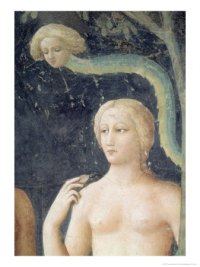
“If you don’t know the trees you may be lost in the forest, but if you don’t know the stories you may be lost in life.” ~ A Siberian Elder’s Proverb
“Those who do not have power over the story that dominates their lives, the power to retell it, rethink it, deconstruct it, joke about it, and change it as times change, truly are powerless, because they cannot think new thoughts.” ~ Salman Rushdie
I remember this story pretty clearly, though story-sharings like this one happen to me a lot.
Sitting at a gathering a few years ago, at the intermission for a music performance, a woman shared her story of her ‘dark night of the soul’ — a series of several transformation cycles over several years, in which her previous conceptions about herself disintegrated, moved into chaos, and were slowly being reborn or recreated anew.
She knew it, and I recognized it from my own experience: She was not in Kansas anymore. Whatever her personal Kansas had been, it was no longer.
She had been thrown to the fierce edges of life, as the poet David Whyte called it. And as his poet-brother Theodore Roethke knew and wrote, “In a dark time, the eye begins to see.”
She was seeking for the common thread or taproot of her Underworld or Dark Night journey — shiny-breadcrumb clues and Ariadne-threads that one finds and follows to find the Way when the old way is lost and the old maps are useless.
By then, I’d explored and mapped quite a bit of Underworld myself, so when I heard what she was seeking, Lilith came to mind.

“Lilith the demon-seductress?” she asked. There was a glimmer of curiosity rising up out of the rubble of confusion — a spark of deep ancestral memory and One’s Self coming to life.
Yes, that very Lilith who was, like us, run out of her Eden by some seriously weird, definitely not-in-the-program circumstances.
“If you keep telling the same sad small story, you will keep living the same sad small life.” ~ Jean Houston
First, let’s look at the power of story (or smear, in this case), and then Lilith’s smearing and her original story (and why it matters to us).
Lilith, like Mary Magdalene, Hypatia, Circe, and other feisty heroines, got the bad end of a well-orchestrated and often brutally enforced smear-campaign.
How does that happen, exactly — the erasing or smearing out of existence those empowering stories, to be replaced by lesser fear-stories?
A conquering culture or ‘authority’ rips out the taproots of the pre-existing culture or identity, and shifts its ‘old ways’ to the new, Empire-approved rules and mores by controlling the stories — and in these cases, ‘encouraging’ the shift through violence and thus fear.
Ultimately, both the new story and the underlying association with fear are like seeds that find their place not just in the collective consciousness, but also in the very cells of the body.

And those fear-seeds lurk there still, along with the taproots of original knowing and its wisdom.
No wonder so many of us feel like we have holes and tears in our psyches and souls. We do individually and collectively. They can be mended, though, the tears healed and rewoven.
That’s our task now, or part of it anyway: Uncovering and sorting out that mess, like Psyche, who was given the seemingly impossible task of sorting the giant pile of seeds — which she did, by the way, though with a bit of help from unexpected friends.
Like Psyche sorting through the seeds, this is part of our Great Work now, as we each weave our individual threads as part of the Great Turning: tearing up the pavement of the false, and sorting through the implanted fear-stories to recover the medicine ways and wisdom, the threads, and the taproots that await our rediscovery.
We feel better, love better, think better, act better, choose better, weather storms better, and are more creative, feisty, and resilient when we’ve reconnected to our taproots.
“We are the first generation bombarded with so many stories from so many authorities, none of which are our own…But the effect of being bombarded with all of these points of view is that…we become people who are written on from the outside.” ~ Sam Keen
<span style=”color: #7f003f; The Power of Our Stories
This experience highlights the power of stories on and within us, including the stories that we’re not even aware of, that run themselves as part of our ‘below the radar’ programming.
These are the programs and stories that we live by, and thus live into.
Even though implant-stories are woven into our cells, we can really be renewed by the change of heart and mind.
Reality follows the dominant story line. Change the story, or stories, and you change the perception and ultimately the reality, whether it be culture, experience, individual or group mind.
And yet there are also, still living within us and within the deeper collective remembrance, the other stories — the ones from before the edits occurred or the replacement stories were planted. Reaching for those helps us to change mind and reality starting right where we are.

Lilith’s Story
In the case of Lilith, the ‘replacement story’ reshaped her as a villain, a she-demon who preyed upon the poor fellas who found themselves at the mercy of their desire-nature (this happened to Circe, too!).
Of course, they didn’t want to take responsibility for their own lack of discipline and control over their desire-nature — and really what amounted to the lack of understanding of their natural desire in a culture that had made it a sin — so, thus shamed, they projected it on the ‘she-demon’.
To make the story even more effective, they said that Lilith would come in the night to steal and eat the babies, too. Babies!
Lilith going from feisty, independent-minded heroine to a seductress-demon to be feared was a story that carried a more subtle plot-line which was also intended to create a new balance of power from the previous one. It’s shared in another post here, but let’s revisit the Lilith story:
The name ‘Lilith’ is related to the word for ‘night’. We often find seeds of the earlier truth in the word origins.
Lilith was allegedly the first wife of Adam, as the story was told in Genesis 1. God created them in his image, male and female he created them. Equals. Yin and Yang. Complements, neither of which was of lesser or greater important. Both sacred halves of the Great Whole.
Then, Adam’s ego got the best of him, he copped an attitude, and wanted to be superior and thus to make Lilith inferior to him. He fell out of Sacred Union. The Fall we’ve all heard so much about.
According to the story, Adam always wanted Lilith to be beneath him during intimate relations — yet another story of how sacred intimate union can be maligned by ego into a power-over game and an expression of ego-based dominance rather than a sacred, other-respecting prayer.
Lilith refused — that wasn’t the original deal, by which they were created equal, one male, one female.
Rather than passively resign herself to the diminishment, she chose to exile herself from paradise and flew to the wilder hillsides and mountains. Because Lilith didn’t ‘fall’ into duality by forgetting her true nature, she remained immortal.

Adam was beside himself, so God then created another mate for Adam — Eve, a supposedly more passive female, who eventually gained knowledge of her own immortal nature.
You know: the tree, the apple, the snake. And the story goes on. Eve turned into a ‘bad girl’, too, according to the Patriarchs.
But this suggests that Lilith’s story had older and far more different roots.
Who was Lilith before she was demonized by fearful and fearsome Patriarchs who wanted to downplay Feminine power, sacredness, and independent expression, and ingrain a fear of women, intimacy, sensuality, the unknown, the mysteries of life and death that they perhaps wanted to control?
What is it to regain (or retell) the original story of Lilith — to remember it and retell it anew for new times when Lilith’s ‘whole Feminine’ is desperately needed and no doubt desperately sought by the Sacred Masculine searching for his true, whole “other half”?
This is just one example of the importance of remembering — re-membering — and embodying and sharing these reclaimed, more whole stories.
Until next time…
Big Love,
Jamie
This post is a significant update and revision of a deep-archive, 2006 Sophia’s Children post about Lilith and Changing Stories.
Stir your remembering with the original audio programs of The Feminine Mojo Mystery School – explore and renew your taproots, power myths, and stories.



July 7, 2014 at 7:41 pm
Beautiful post. Thank you!
July 7, 2014 at 8:25 pm
You’re very welcome; I’m glad you enjoyed the post, Laurel. xoxo Jamie
July 8, 2014 at 12:08 am
Great post Jamie! 🙂 Thank you! <3 <3 <3 NadineMarie
July 8, 2014 at 12:12 am
You’re welcome, NadineMarie. I’m glad you enjoyed it. xoxo Jamie